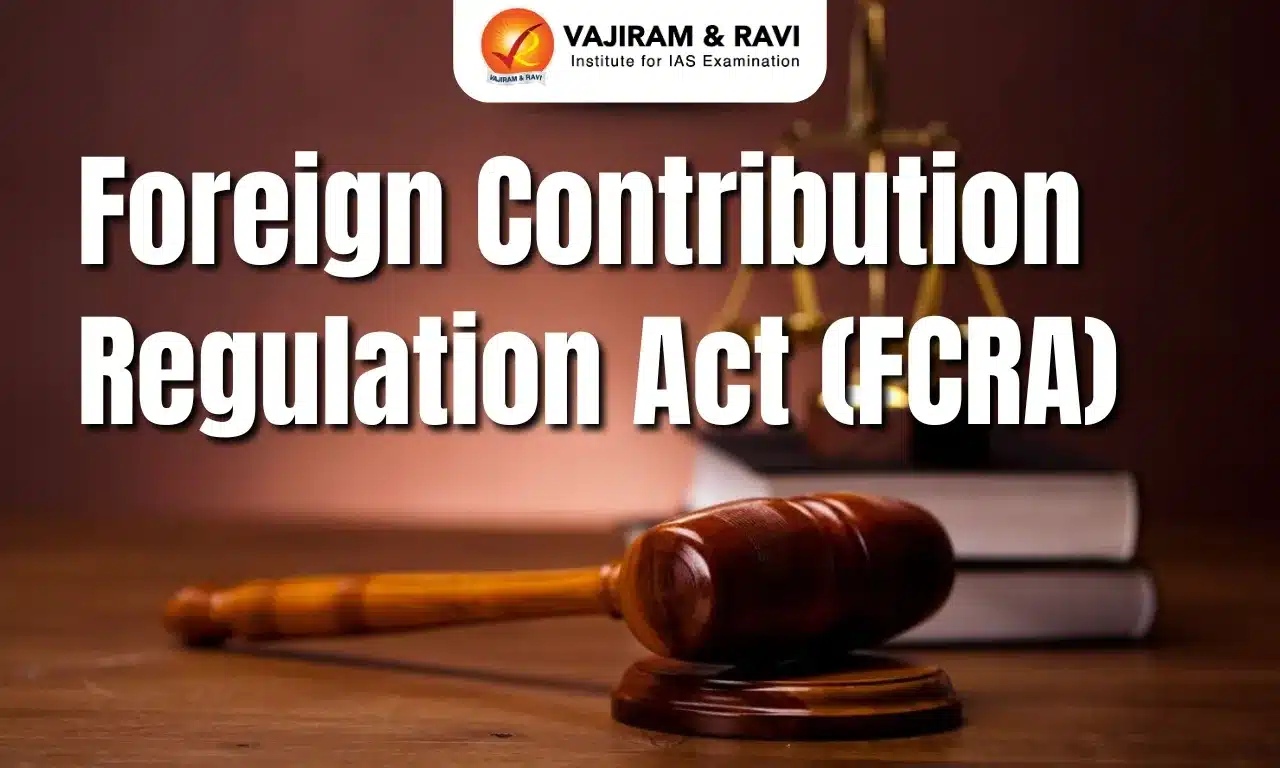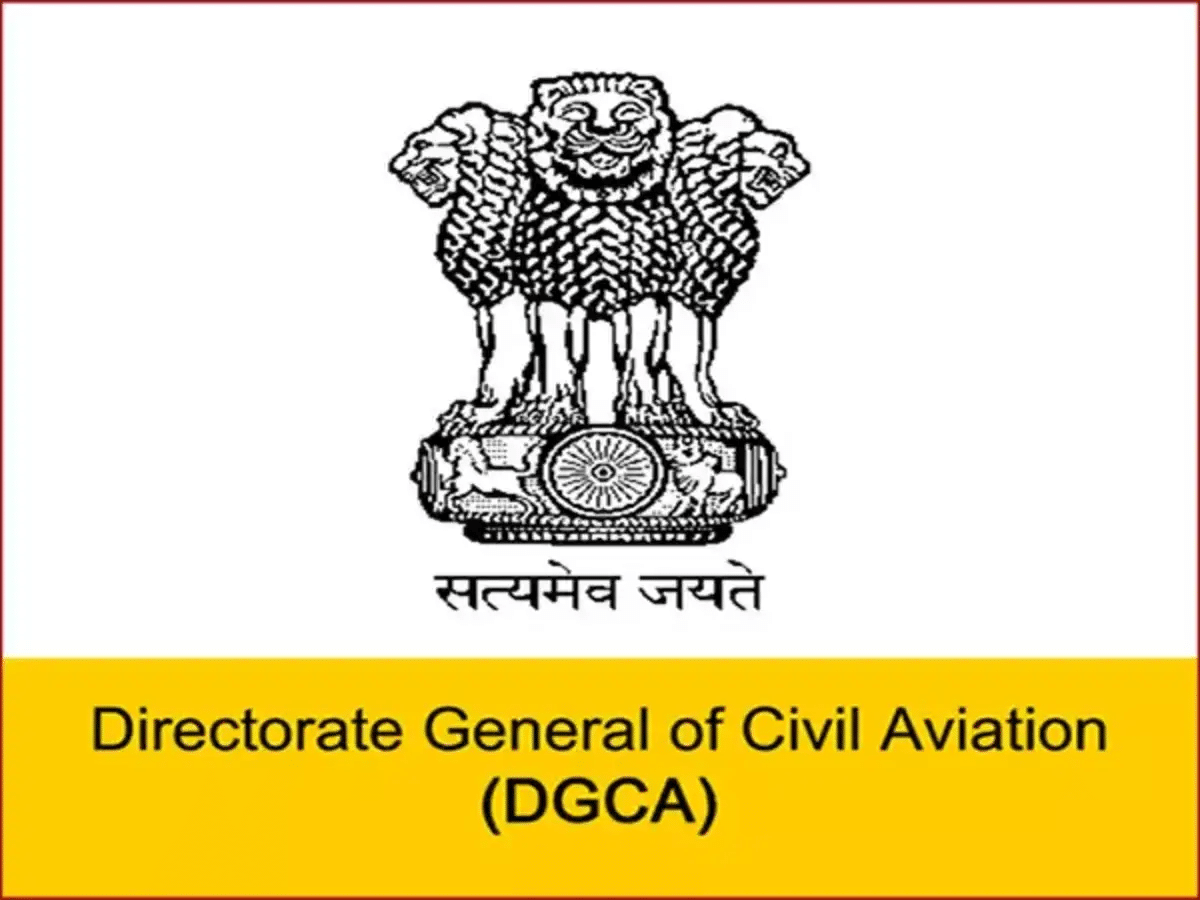Foreign Contribution Regulation Act (FCRA) Latest News
Recently, the Union Home Ministry revoked the FCRA licence of the Students Educational and Cultural Movement of Ladakh (SECMOL), founded by climate activist Sonam Wangchuk.
About the Foreign Contribution Regulation Act (FCRA)
- The Foreign Contribution (Regulation) Act (FCRA) was originally enacted in 1976 during the Emergency to prevent foreign influence on India’s internal affairs through financial contributions.
- The FCRA, 2010, currently in force, regulates the acceptance and utilisation of foreign funds by individuals, associations, and companies in India.
- Its primary objective is to ensure that foreign donations do not compromise national sovereignty, integrity, or internal security, and are used only for legitimate developmental purposes.
Amendments to FCRA
FCRA (Amendment), 2010
- Consolidated the 1976 law.
- Expanded coverage to associations, NGOs, and companies.
- Strengthened the regulatory framework.
FCRA (Amendment), 2020 Key Changes
- Ban on Transfers: Prohibits NGOs from transferring foreign contributions to other NGOs or individuals.
- Mandatory Aadhaar: All office bearers must provide Aadhaar/passport/OCI details for registration.
- FCRA Account: All contributions must be received only in the designated SBI branch, New Delhi.
- Reduced Administrative Expenses: Limit cut from 50% to 20% of foreign funds.
- Renewal of Licence: Renewal contingent on government scrutiny for fictitious entities or misuse.
- Suspension Extension: Suspension of registration can last up to 360 days.
- Surrender Provision: Organisations can voluntarily surrender their FCRA licence, subject to approval.
- Bar on Public Servants: Public servants are prohibited from receiving foreign contributions.
FCRA Rules (Amendment), 2022
- Increased the annual limit for foreign remittances from relatives abroad from ₹1 lakh to ₹10 lakh without prior intimation.
- Simplified compliance for smaller transactions but reinforced safeguards against foreign funds that may threaten national interests.
Categories under FCRA
- Prohibited Recipients: Candidates for elections, journalists, media houses, judges, government servants, members of legislatures, political parties, and organisations of political nature.
- Permitted Use: NGOs, educational, cultural, economic, and social associations, provided they comply with regulations.
- Validity: Registration valid for 5 years, renewable upon application at least 6 months before expiry.
Source: TH
Last updated on November, 2025
→ Check out the latest UPSC Syllabus 2026 here.
→ Join Vajiram & Ravi’s Interview Guidance Programme for expert help to crack your final UPSC stage.
→ UPSC Mains Result 2025 is now out.
→ UPSC Notification 2026 is scheduled to be released on January 14, 2026.
→ UPSC Calendar 2026 is released on 15th May, 2025.
→ The UPSC Vacancy 2025 were released 1129, out of which 979 were for UPSC CSE and remaining 150 are for UPSC IFoS.
→ UPSC Prelims 2026 will be conducted on 24th May, 2026 & UPSC Mains 2026 will be conducted on 21st August 2026.
→ The UPSC Selection Process is of 3 stages-Prelims, Mains and Interview.
→ UPSC Result 2024 is released with latest UPSC Marksheet 2024. Check Now!
→ UPSC Prelims Result 2025 is out now for the CSE held on 25 May 2025.
→ UPSC Toppers List 2024 is released now. Shakti Dubey is UPSC AIR 1 2024 Topper.
→ UPSC Prelims Question Paper 2025 and Unofficial Prelims Answer Key 2025 are available now.
→ UPSC Mains Question Paper 2025 is out for Essay, GS 1, 2, 3 & GS 4.
→ UPSC Mains Indian Language Question Paper 2025 is now out.
→ UPSC Mains Optional Question Paper 2025 is now out.
→ Also check Best IAS Coaching in Delhi
Foreign Contribution Regulation Act (FCRA) FAQs
Q1. What is the FCRA?+
Q2. Can the government cancel an FCRA licence?+
Q3. Under which Ministry does FCRA fall?+

















